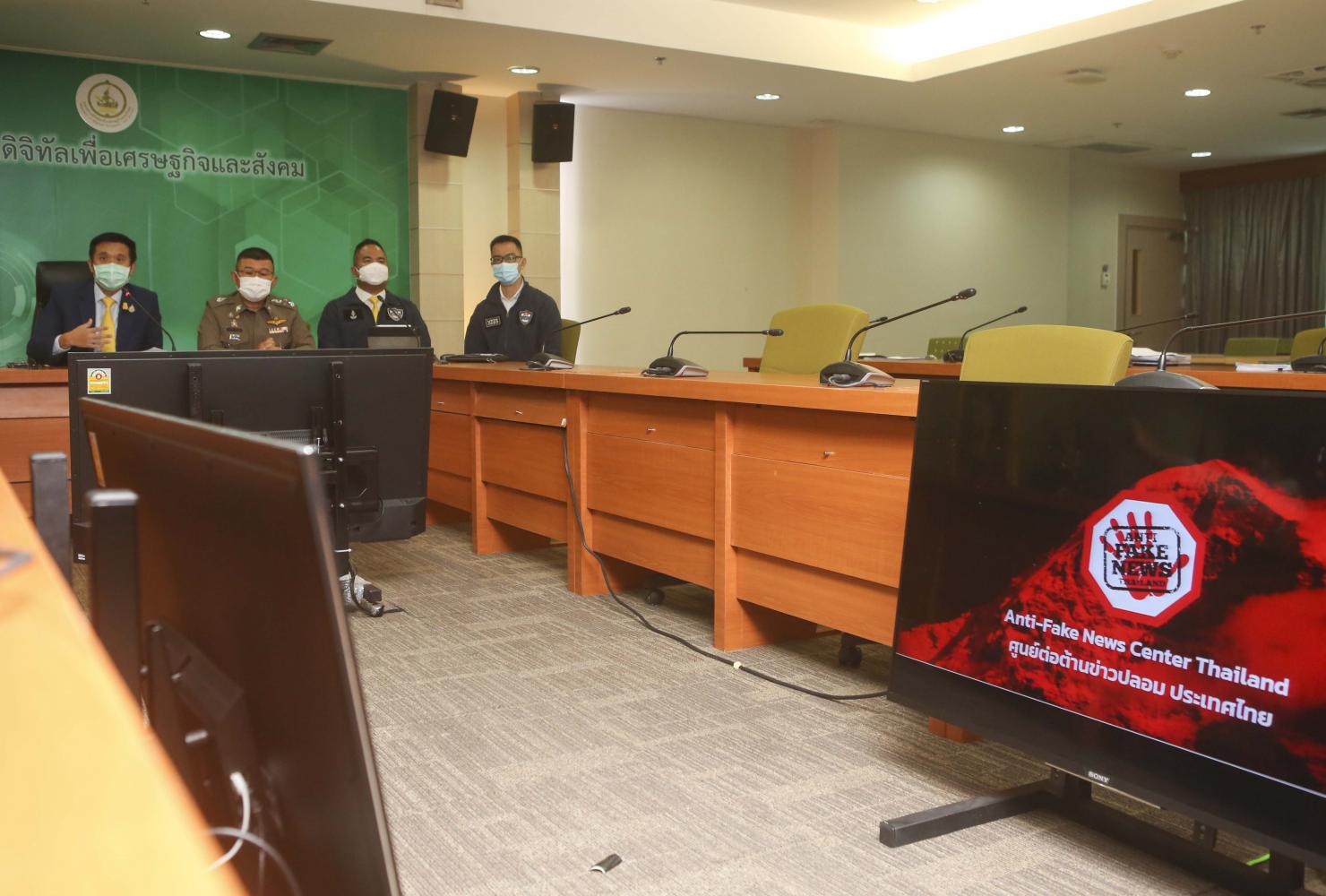
Thailand is doing better than other countries in curbing the Covid-19 pandemic. We have several thousand cases and more than 100 deaths a day. But the government led by Prime Minister Prayut Chan-o-cha can handle the situation effectively, and you all can trust his dream team. Everyone can easily access testing and vaccines. No one dies on the street. No one is left behind in a severe health condition.
But as I tell you this, you will know none of it is close to being true.
It's obvious that Thailand's Covid-19 management has been in a mess. Every day, you see stories of critical patients, sometimes whole families, waiting for hospital care at home -- or dying waiting.
Hundreds of people have waited in lines overnight to get Covid-19 tests from government facilities. Vaccine appointments for many people, including the elderly, have been postponed because the government made a wrong decision earlier to rely on a few vaccine manufacturers.
All these prove the government is struggling to control the pandemic including the recent outbreak of the highly contagious Delta variant. But the leaders did not seem to listen to the public or journalists.
In fact, Gen Prayut last Thursday issued an anti-fake news order to prohibit anyone from "reporting news or disseminating information that may frighten people".
Under the emergency decree, the order also forbids "intentionally distorting information that causes a misunderstanding about the emergency situation, which may eventually affect state security, order or good morality of the people".
If such information is detected, the National Broadcasting and Telecommunications Commission (NBTC) will notify internet service providers to check from which IP address that information has come. Their internet access will be blocked, or the government will take legal action against them.
I understand that the surge of disinformation, especially on online platforms, has undermined the government's response to the pandemic in Thailand and everywhere globally.
But enforcing an authoritarian order to solve this challenge is not a smart choice, and it is quite problematic for anyone on the internet.
The order opens a large interpretation gap for authorities to define the information that violates the law -- opening the chance officialdom to silence journalists, activists, and influencers who have highlighted the government's mismanagement of the crisis.
Under this incumbent prime minister, media gags and libel law have been increasingly used to deter honest criticism -- which is not fake news.
The latest glaring example is that of rapper Danupa "Milli" Kanaterrakul, 18, who was summoned to a police station and fined 2,000 baht for defaming the prime minister after she criticised his handling of the Covid-19 situation on social media.
The complaint was filed by one of his committees on his behalf.
Her case proceeded under libel law, one of the tools that the government has often used to suppress freedom of expression.
The Computer Crime Act, passed to fight online disinformation directly, is another option for authorities to silence critics. Given these laws, Gen Prayut does not need any additional orders to handle disinformation.
To issue a new one backed up by the emergency decree suggests his government needs absolute power to navigate public sentiment and prop up its image, brought down by its own mistakes in handling the Covid-19 situation.
A much-criticised government Covid measure is its vaccine policy -- all that heavy leaning on the AstraZeneca brand and failing to join Covid-19 Vaccine Global Access (Covax).
Covax is a United Nation's initiative to provide free vaccines to low and middle-income nations and so far, 153.6 million doses have been shipped to 137 countries.
Health scholars suggested Thailand join Covax back in the second half of last year. The government failed to do so, arguing that Covid-19 vaccine development was in an early stage, and it did not want to take risks with the programme.
The government said it needed to advance money first for vaccine management and could not determine what types of vaccines were needed, nor determine exact delivery times.
Thai procurement law also prohibited the government from spending on commodities that do not exist in the market. If this is the reason, it is strange the government did not use its omnipotent emergency decree to clear bureaucratic red tape.
Covax emerged right after the first Covid-19 outbreak when the international community praised Thailand for its effectiveness in controlling the pandemic.
This success made the leaders overconfident about Thai health capacity. They failed to make an aggressive effort to secure a wide variety of vaccine choices.
This decision led to Thailand's struggle in vaccine rollout and pandemic control today. It must turn to the Chinese Sinovac vaccine, which is said to be the pragmatic choice in terms of placing orders and fast delivery.
What is noteworthy is the Public Health Ministry recently announced it would now apply to join Covax and seek mRNA vaccines from manufacturers such as Pfizer and Johnson & Johnson.
The decision confounded the public even more, and confidence in the government and vaccine plans has rarely improved. Again, the government cannot give the actual reasons why it has decided join Covax now, and not back then.
With so many questions on Covid policy blunders left unanswered, Gen Prayut has made matters worse by imposing the anti-fake news order.
Perhaps he hopes it can silence critics, yet the fact remains -- the government has repeatedly failed in its handling of the outbreak.
Indeed, it has failed to do the most basic things such as removing bureaucratic red tape and communicating better with the public to ensure transparency in its decision making.
Paritta Wangkiat is a Bangkok Post columnist.
